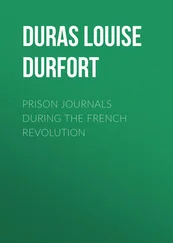Томас Карлейль - The French Revolution - A History
Здесь есть возможность читать онлайн «Томас Карлейль - The French Revolution - A History» — ознакомительный отрывок электронной книги совершенно бесплатно, а после прочтения отрывка купить полную версию. В некоторых случаях можно слушать аудио, скачать через торрент в формате fb2 и присутствует краткое содержание. Жанр: foreign_prose, История, foreign_edu, foreign_antique, на английском языке. Описание произведения, (предисловие) а так же отзывы посетителей доступны на портале библиотеки ЛибКат.
- Название:The French Revolution: A History
- Автор:
- Жанр:
- Год:неизвестен
- ISBN:нет данных
- Рейтинг книги:4 / 5. Голосов: 1
-
Избранное:Добавить в избранное
- Отзывы:
-
Ваша оценка:
- 80
- 1
- 2
- 3
- 4
- 5
The French Revolution: A History: краткое содержание, описание и аннотация
Предлагаем к чтению аннотацию, описание, краткое содержание или предисловие (зависит от того, что написал сам автор книги «The French Revolution: A History»). Если вы не нашли необходимую информацию о книге — напишите в комментариях, мы постараемся отыскать её.
The French Revolution: A History — читать онлайн ознакомительный отрывок
Ниже представлен текст книги, разбитый по страницам. Система сохранения места последней прочитанной страницы, позволяет с удобством читать онлайн бесплатно книгу «The French Revolution: A History», без необходимости каждый раз заново искать на чём Вы остановились. Поставьте закладку, и сможете в любой момент перейти на страницу, на которой закончили чтение.
Интервал:
Закладка:
Likewise ashlar stones of the Bastille continue thundering through the dusk; its paper-archives shall fly white. Old secrets come to view; and long-buried Despair finds voice. Read this portion of an old Letter: ( Dated, a la Bastille, 7 Octobre, 1752; signed Queret-Demery. Bastille Devoilee, in Linguet, Memoires sur la Bastille ( Paris, 1821 ), p. 199. ) 'If for my consolation Monseigneur would grant me for the sake of God and the Most Blessed Trinity, that I could have news of my dear wife; were it only her name on card to shew that she is alive! It were the greatest consolation I could receive; and I should for ever bless the greatness of Monseigneur.' Poor Prisoner, who namest thyself Queret Demery, and hast no other history,—she is dead, that dear wife of thine, and thou art dead! 'Tis fifty years since thy breaking heart put this question; to be heard now first, and long heard, in the hearts of men.
But so does the July twilight thicken; so must Paris, as sick children, and all distracted creatures do, brawl itself finally into a kind of sleep. Municipal Electors, astonished to find their heads still uppermost, are home: only Moreau de Saint-Mery of tropical birth and heart, of coolest judgment; he, with two others, shall sit permanent at the Townhall. Paris sleeps; gleams upward the illuminated City: patrols go clashing, without common watchword; there go rumours; alarms of war, to the extent of 'fifteen thousand men marching through the Suburb Saint-Antoine,'—who never got it marched through. Of the day's distraction judge by this of the night: Moreau de Saint-Mery, 'before rising from his seat, gave upwards of three thousand orders.' ( Dusaulx. ) What a head; comparable to Friar Bacon's Brass Head! Within it lies all Paris. Prompt must the answer be, right or wrong; in Paris is no other Authority extant. Seriously, a most cool clear head;—for which also thou O brave Saint-Mery, in many capacities, from august Senator to Merchant's-Clerk, Book-dealer, Vice-King; in many places, from Virginia to Sardinia, shalt, ever as a brave man, find employment. ( Biographie Universelle, para Moreau Saint-Mery ( by Fournier-Pescay ). )
Besenval has decamped, under cloud of dusk, 'amid a great affluence of people,' who did not harm him; he marches, with faint-growing tread, down the left bank of the Seine, all night,—towards infinite space. Resummoned shall Besenval himself be; for trial, for difficult acquittal. His King's-troops, his Royal Allemand, are gone hence for ever.
The Versailles Ball and lemonade is done; the Orangery is silent except for nightbirds. Over in the Salle des Menus, Vice-president Lafayette, with unsnuffed lights, 'with some hundred of members, stretched on tables round him,' sits erect; outwatching the Bear. This day, a second solemn Deputation went to his Majesty; a second, and then a third: with no effect. What will the end of these things be?
In the Court, all is mystery, not without whisperings of terror; though ye dream of lemonade and epaulettes, ye foolish women! His Majesty, kept in happy ignorance, perhaps dreams of double-barrels and the Woods of Meudon. Late at night, the Duke de Liancourt, having official right of entrance, gains access to the Royal Apartments; unfolds, with earnest clearness, in his constitutional way, the Job's-news. "Mais," said poor Louis, "c'est une revolte, Why, that is a revolt!"—"Sire," answered Liancourt, "It is not a revolt, it is a revolution."
Chapter 1.5.VIII
Conquering your King
On the morrow a fourth Deputation to the Chateau is on foot: of a more solemn, not to say awful character, for, besides 'orgies in the Orangery,' it seems, 'the grain convoys are all stopped;' nor has Mirabeau's thunder been silent. Such Deputation is on the point of setting out—when lo, his Majesty himself attended only by his two Brothers, step in; quite in the paternal manner; announces that the troops, and all causes of offence, are gone, and henceforth there shall be nothing but trust, reconcilement, good-will; whereof he 'permits and even requests,' a National Assembly to assure Paris in his name! Acclamation, as of men suddenly delivered from death, gives answer. The whole Assembly spontaneously rises to escort his Majesty back; 'interlacing their arms to keep off the excessive pressure from him;' for all Versailles is crowding and shouting. The Chateau Musicians, with a felicitous promptitude, strike up the Sein de sa Famille ( Bosom of one's Family ): the Queen appears at the balcony with her little boy and girl, 'kissing them several times;' infinite Vivats spread far and wide;—and suddenly there has come, as it were, a new Heaven-on-Earth.
Eighty-eight august Senators, Bailly, Lafayette, and our repentant Archbishop among them, take coach for Paris, with the great intelligence; benedictions without end on their heads. From the Place Louis Quinze, where they alight, all the way to the Hotel-de-Ville, it is one sea of Tricolor cockades, of clear National muskets; one tempest of huzzaings, hand-clappings, aided by 'occasional rollings' of drum-music. Harangues of due fervour are delivered; especially by Lally Tollendal, pious son of the ill-fated murdered Lally; on whose head, in consequence, a civic crown ( of oak or parsley ) is forced,—which he forcibly transfers to Bailly's.
But surely, for one thing, the National Guard must have a General! Moreau de Saint-Mery, he of the 'three thousand orders,' casts one of his significant glances on the Bust of Lafayette, which has stood there ever since the American War of Liberty. Whereupon, by acclamation, Lafayette is nominated. Again, in room of the slain traitor or quasi-traitor Flesselles, President Bailly shall be—Provost of the Merchants? No: Mayor of Paris! So be it. Maire de Paris! Mayor Bailly, General Lafayette; vive Bailly, vive Lafayette—the universal out-of-doors multitude rends the welkin in confirmation.—And now, finally, let us to Notre-Dame for a Te Deum.
Towards Notre-Dame Cathedral, in glad procession, these Regenerators of the Country walk, through a jubilant people; in fraternal manner; Abbe Lefevre, still black with his gunpowder services, walking arm in arm with the white-stoled Archbishop. Poor Bailly comes upon the Foundling Children, sent to kneel to him; and 'weeps.' Te Deum, our Archbishop officiating, is not only sung, but shot—with blank cartridges. Our joy is boundless as our wo threatened to be. Paris, by her own pike and musket, and the valour of her own heart, has conquered the very wargods,—to the satisfaction now of Majesty itself. A courier is, this night, getting under way for Necker: the People's Minister, invited back by King, by National Assembly, and Nation, shall traverse France amid shoutings, and the sound of trumpet and timbrel.
Seeing which course of things, Messeigneurs of the Court Triumvirate, Messieurs of the dead-born Broglie-Ministry, and others such, consider that their part also is clear: to mount and ride. Off, ye too-loyal Broglies, Polignacs, and Princes of the Blood; off while it is yet time! Did not the Palais-Royal in its late nocturnal 'violent motions,' set a specific price ( place of payment not mentioned ) on each of your heads?—With precautions, with the aid of pieces of cannon and regiments that can be depended on, Messeigneurs, between the 16th night and the 17th morning, get to their several roads. Not without risk! Prince Conde has ( or seems to have ) 'men galloping at full speed;' with a view, it is thought, to fling him into the river Oise, at Pont-Sainte-Mayence. ( Weber, ii. 126. ) The Polignacs travel disguised; friends, not servants, on their coach-box. Broglie has his own difficulties at Versailles, runs his own risks at Metz and Verdun; does nevertheless get safe to Luxemburg, and there rests.
Читать дальшеИнтервал:
Закладка:
Похожие книги на «The French Revolution: A History»
Представляем Вашему вниманию похожие книги на «The French Revolution: A History» списком для выбора. Мы отобрали схожую по названию и смыслу литературу в надежде предоставить читателям больше вариантов отыскать новые, интересные, ещё непрочитанные произведения.
Обсуждение, отзывы о книге «The French Revolution: A History» и просто собственные мнения читателей. Оставьте ваши комментарии, напишите, что Вы думаете о произведении, его смысле или главных героях. Укажите что конкретно понравилось, а что нет, и почему Вы так считаете.












